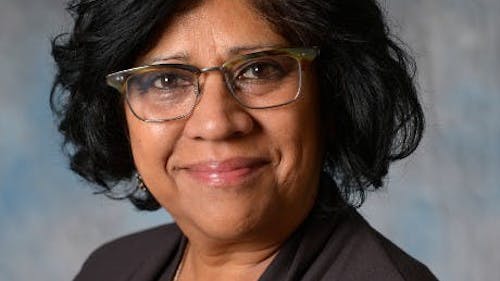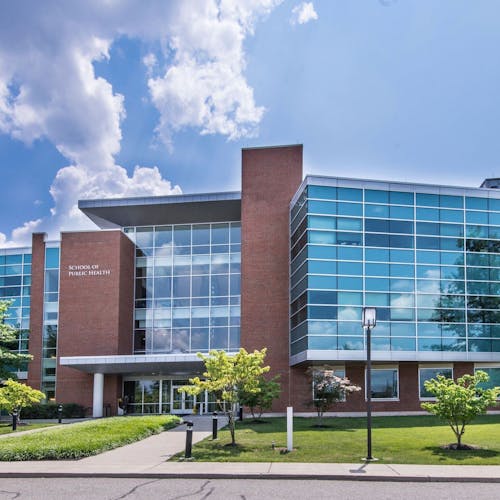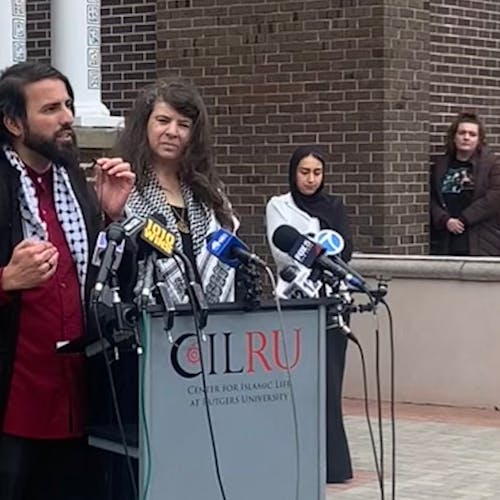Rutgers feminist advocacy course takes students to the UN

Every year since 2012, Rutgers has sent groups of students to the United Nations Commission on the Status of Women (CSW).
Radhika Balakrishnan, a professor in the Department of Women's and Gender Studies, has worked with the Center for Women’s Global Leadership to lead a 3-credit course called “Feminist Advocacy for Women’s Rights through the United Nations.”
The course allows students to explore the concepts of advocacy for women’s human rights and to learn how to affect policy change, Balakrishnan said.
“The great thing about the course is that (students) get to go into the United Nations (UN) and get to see how government functions, they go to the NGO forum where non-governmental organizations meet,” she said. “They also get to understand the content of what happens in an organization.”
Last year’s class sent approximately 19 students to the CSW to explore topics on feminist advocacy and witness the policy-making proceedings involved in the UN’s push for gender equality.
At the event, students heard from women and researchers describing the problems befalling women in the modern world and good ways to get involved in solving them, Balakrishnan said.
The Commission, held every year in New York City, lasts two weeks and promotes intergovernmental discussion and adoption of initiatives to further the advancement of women, according to the Commission on the Status of Women site.
Each year has a theme, and this year’s was “Challenges and opportunities in achieving gender equality and the empowerment of rural women and girls.” The theme for 2019 will be “Social Protection Systems.”
Students spent class time learning about issues that beset women around the globe. This year’s class focused on issues of gender and social protection, Balakrishnan said.
She and some of her colleagues founded the class on the belief that interns who attended CSW needed a more formal introduction to the UN and feminist advocacy. The professor then started an unofficial training in preparation for a weekend of Commission attendance.
“We first started by having a weekend training, and then getting a group of 15 or 20 students to come for a weekend, and we then got them to attend the conference," Balakrishnan said. "After that experience, I thought ‘You know what, this should be a credit-bearing course.’ And so the next semester we did it as a 1-credit bearing course.”
She agreed with the dean that the program could be offered as a full 3-credit course, and students began signing up for the class.
"Participation Generation," created by Rutgers alumna Morgan Sanguedolce, was inspired by the class. The film details how the class empowers young men and women to partake in political activism, as reported by The Daily Targum.
Sanguedolce, who graduated Rutgers last year and now works for Entertainment Weekly, created the film through Campus Movie Fest, an organization that brings professional-grade movie equipment to college campuses and then judges them on a national scale.
"Participation Generation" was awarded the best documentary film that year.
Balakrishnan also focuses on economics and applies that knowledge to understanding human rights and gender studies. She is the faculty director for the Center for Women’s Global Leadership that seeks to understand the relationship between gender equality and economics and promote policy that seeks to strengthen the rights of women.
Students' applications for the class open in November and are reviewed based on previous coursework on women’s rights, as well as related extracurricular activities like rights advocacy. Any students interested in the class are encouraged to apply.
“In my experience of teaching the course, so many students who have taken it have really committed to doing the work and many of them have gotten internships with organizations they spoke with, some of them got jobs. There really is a sense of camaraderie and cohort among the students," Balakrishnan said.



